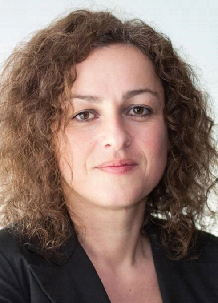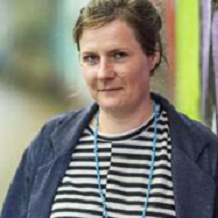WIKA-Workshop 2020 – Speakers
Atelier 1: Cultural Divides within and across Societies
 |
Prof. Dr. Richard Higgott
Prof. Dr. Richard Higgott, FRSA, FAcSS is Emeritus Professor of International Political Economy at the University of Warwick, Researcher in International Diplomacy at the new Brussels School of Governance at Vrije Universiteit Brussel (VUB) and Visiting Professor in Political Science at the University of Siena. During 2016–2019 he was a Senior Researcher on the EU funded Horizon 2020 project on European Leadership in Culture, Science and Innovation Diplomacy (EL CSID). Some recent publications relevant to his presentation at WIKA Workshop 2020 include “Populism, Nationalism and Foreign Policy” (with Virginia Proud; Institut für Auslandsbeziehungen 2017; “Cultural Diplomacy in Europe: Between the Domestic and the International” (with Catarina Carta (eds.); Palgrave 2019) and “Sovereignty in an Era of Digitalisation” (with Kate Coyer). A revised version of “Civilisations, States and World Order” (2019) will be published by Routledge in 2021.
Abstract
The Influence of Populism and Nationalism on Cultural Relations and Cultural Diplomacy
The presentation will identify the practical implications of what I call the emerging cultural problematique on contemporary international relations and cultural relations and diplomacy as a sub set. The presentation will work with a generic understanding of culture as a “set of values, beliefs, customs, morals, norms and practices” operating in Terry Eagleton’s expression as “a whole way of life”. It will argue that we must recognise a major trend in international relations and diplomacy; the emergence of the cultural problematique to rival the salience of more traditional problematiques that shape and determine international behaviour: the geo-strategic and economic. The presentation will demonstrate the impact of two factors driving the cultural problematique: (i) the emergence of the “populist-nationalist zeitgeist” and (ii) the separate, but related re-assertion of the rights of the “civilisational state” as seen in new readings of the pre-Westphalian histories and cultures of countries like China, India, Russia and Turkey. |
 |
Claudia Schäfer
Claudia Schäfer is a Journalist by profession and worked as a print, radio and online Reporter for many years in and from Germany, Austria, Bosnia and Herzegovina and the United States, mostly featuring socio-political topics. She gained additional expertise on democracy, migration, European integration and urban development as a Researcher, Campaigner, Project Manager and Consultant. Before joining the International Network Against Cyber Hate (INACH), Claudia Schäfer managed an anti-racism NGO for eight years where she initiated, designed and implemented many activities that established solid methods and sustainable structures to document, research and counter online hate phenomena. Since March 2019, she is building-up INACHs new projects department where she is also the Coordinator of the project Re-ACT.
Abstract
The State of Online Hate and Mitigation through Networking
By now, hate has invaded most of our communications. ‘Fake news’ is used as a tool to incite mistrust and hatred. Widespread hate speech deteriorating vulnerable groups on social networking sites has its share on the advancement of social disruption. Hate of ‘others’ lays at the basis of any terrorism or extremist movement. As early as 2002, the International Network Against Cyber (INACH), has started its fight against all forms of online hate, and grew by now to a total of 29 members worldwide. It does so with multidimensional approaches, including networking, knowledge exchange and joint activities, such as the regular participation of INACH members in monitoring of the so called “Code of conduct on countering illegal hate speech online”, established between the European Commission and major social media platforms in 2016. Since February 2020, INACH is putting a special focus on antigypsyism and antisemitism online, with the aim of increasing awareness on the resurrection of Nazi-slurs, ideologies and practices in nowadays hate postings. In the course of this project, a prevention-hub shall be established to provide educators and others active in the prevention of online hate with ready to use materials and tools for their lessons. |
Atelier 2: Media and CSO Approaches to Mutual Understanding within and across Societies
 |
Dr. Janine Dieckmann
Dr. Janine Dieckmann is working as a Social Psychologist at the Institute for Democracy and Civil Society (IDZ) since 2016. She holds a doctoral degree in Social Psychology from the University of Jena where she took part in the PhD program of the International Graduate College Conflict and Cooperation between Social Groups (Jena, Louvain-la-Neuve, Sussex, Canterbury). After her PhD, she worked as a Research Assistance at the Universities of Jena and Landau-Koblenz. As Scientific Coordinator and Project Manager at the Federal foundation Magnus Hirschfeld (2013–2014) she gained experiences in participatory collaboration with self-organizations and practitioners in the field of sexual and gender diversity. Currently, she holds the Scientific Lead of a cooperation project with the Deutsche Aidshilfe about the discrimination of people living with HIV in Germany. Her research interests and projects cover topics on social diversity, prejudice, discrimination, engagement of self-organizations, and social cohesion. Janine Dieckmann is responsible for the research division Diversity, Engagement, and Discrimination at the IDZ and Deputy Member of the institute council at the newly founded Research Institute for Social Cohesion (FGZ).
Abstract
Discrimination as a Threat to Social Cohesion and Democracy
Discrimination of marginalized groups is a deeply rooted phenomenon and a constitutive element of societies. Starting from a social psychological perspective, the short lecture focuses antecedents, outcomes, and functions of discrimination in intergroup contexts. The presented application-oriented model enables an interdisciplinary view on mechanisms of discrimination within society. It integrates psychological, sociological, historical, and judicial perspectives on discrimination. Antecedents of discrimination on the individual, group, and societal level, and their interplay will be described. By means of this model, different approaches of dealing with discrimination and hostility to democracy can be discussed and specific starting points can be developed with practitioners to counteract discrimination in a society. |
 |
Dr. Paul Mihailidis
Dr. Paul Mihailidis is Associate Professor in the Department of Journalism and Assistant Dean in the School of Communication at Emerson College in Boston, MA. In 2016, he founded the MA in Media Design at Emerson College, and in 2020 he founded the Social Justice + Media Symposium. Paul Mihailidis is Senior Fellow of the Emerson Engagement Lab, and Faculty Chair and Director of the Salzburg Academy on Media and Global Change in Salzburg, Austria. He holds Visiting Professorships at Bournemouth University in England and the Catholic University of Argentina in Buenos Aires. Paul Mihailidis has won numerous faculty awards at Emerson College and received the Researcher of the Year Award by the National Association of Media Literacy Education in 2016. He sits on numerous editorial boards, and the advisory board of iCivics. Paul Mihailidis has published 7 books and over 50 articles on the intersection of media literacy, civic media and participation in digital culture. His work has been featured in the New York Times, the Washington Post, Slate Magazine, the Nieman Foundation, USA Today, CNN, and others. His most recent book, “Civic Media Literacies: Re-Imagining Human Connection in an Age of Digital Abundance” (Routledge 2018) explores the way in which media literacy interventions can prioritise civic impact.
Abstract
Persistent Media Literacies: Civic Empowerment and Cultural Participation in a Time of Rampant Media Cynicism
In the United States, and around the world, journalism and public information exist across broken media architectures. Citizens are at the mercy of those eager to take advantage of platform infrastructures in which access, quality, and diversity varies so wildly. Increasingly, politicians are taking advantage of these platform architectures to position people against one another. The result is a fracturing of belief, where truths splinter and trust erodes. Our digital environments are at the center of this fracturing, and our social and civic cohesion is at risk. What has resulted is a rampant cynicism, which is reflected in an intentional disengagement from the information infrastructures that provide civic cohesion. This is buoyed by an erosion of local news environments, which has further disconnected communities or forced them to rely on large scale digital media companies. This talk will detail three areas eroding public trust and engagement – distributed propaganda, hi-jacking of local news, and reifying polarization – and their contributions to growing cynicism toward our current civic and political environments. The essay will pivot to the concept of persistent media literacies to promote an approach to combat the cynicism that has engulfed our political and civic infrastructures. |
